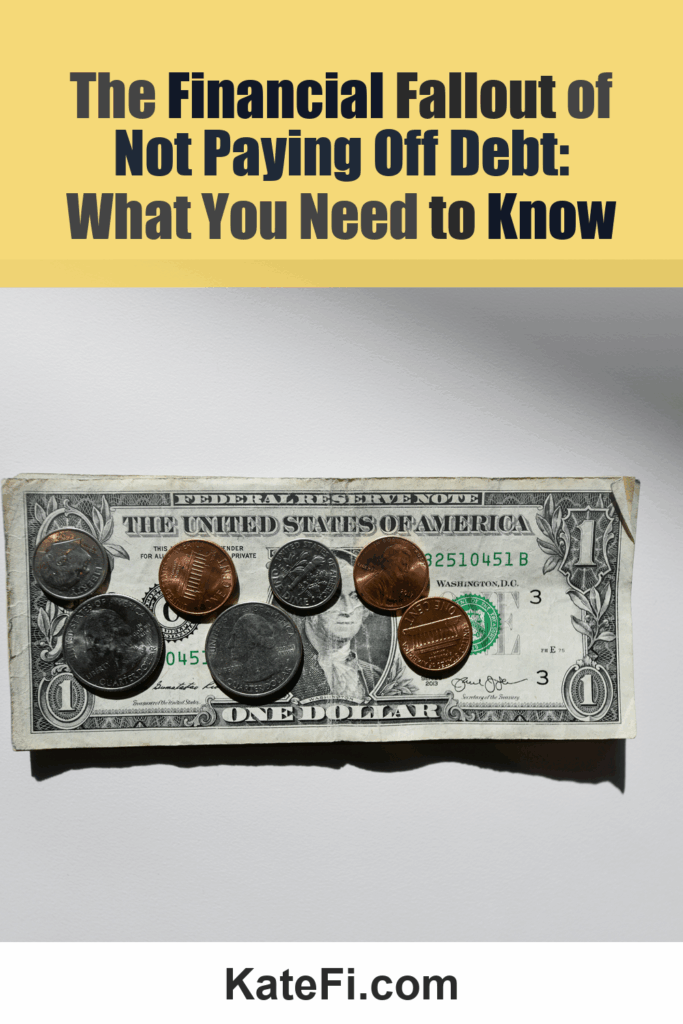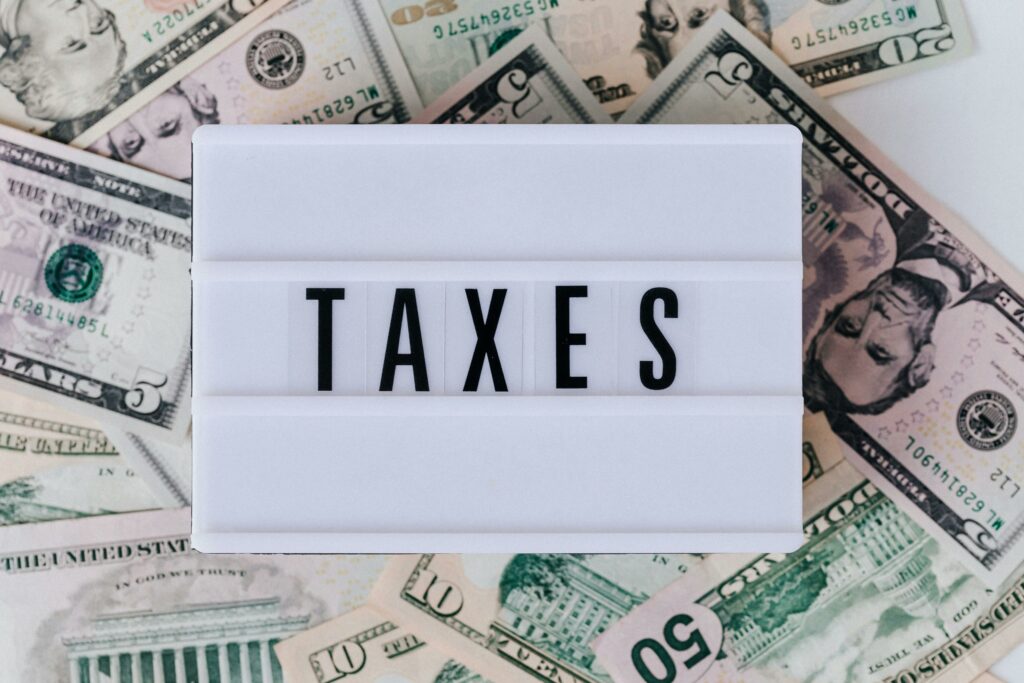Understanding the Fees Involved in Debt Settlement: A Guide
In a world where household debt is at an all-time high, understanding your options for debt relief is more crucial than ever. As inflation rises and economic uncertainties loom, individuals often find themselves at a crossroads when deciding how to tackle their mounting financial obligations. Debt settlement, consolidation, and debt management plans (DMPs) are three popular avenues for managing debt, each with its own set of fees and requirements. This guide will break down the various fees associated with debt settlement and help you decide which option may be the best for your unique situation.
Love our content? Show your support by following us — pretty please!🥺
FOLLOW ON PINTEREST
Hi! I’m Kate, the face behind KateFi.com—a blog all about making life easier and more affordable.
The Debt Landscape: Current Trends
Lower Your Unsecured Debt
If you have $5,000+ in credit card or personal loan debt, a free consult can review options like settlement or hardship plans.
- One-on-one call to review your debts and goals
- See potential monthly payment reductions
- No obligation to enroll
Not available in IL, KS, OR, TN, UT, WV.
Before diving into the specifics of debt settlement, it’s essential to understand the broader context. According to recent reports, the average American household carries over $16,000 in credit card debt, with rising interest rates further complicating the ability to pay down balances. In this climate, many individuals are considering their options for relief, often leading to confusion around the associated fees and processes.
As you contemplate your path forward, it’s advisable to weigh your choices carefully. Should you settle, consolidate, or enroll in a DMP? And how do the fees associated with these strategies compare? Let’s explore these options in detail.
Debt Settlement: A Closer Look
Debt settlement is a negotiation process where you work with creditors to pay less than what you owe. Typically, this involves either negotiating on your own or hiring a professional debt settlement company to assist you. While debt settlement can significantly reduce the amount you owe, it is essential to be aware of the associated fees:
Common Fees in Debt Settlement
- Initial Consultation Fee: Some companies charge for an initial assessment of your financial situation. However, at KateFi, you can get a free consultation to review your options without any upfront cost.
- Service Fees: Most debt settlement companies charge a percentage of the total debt enrolled. This fee usually ranges from 15% to 25% of the total debt being settled, often deducted after each settlement is reached.
- Monthly Fees: Some firms may charge monthly fees during the negotiation process, especially if they are managing your funds in an escrow account until settlements are reached.
- Success Fees: You may encounter a fee for each successful negotiation where your creditor agrees to the reduced amount.
While these fees can seem daunting, understanding them helps clarify the value of the service. In many cases, the reduction in overall debt may outweigh the fees incurred during the process.
✅ See If You Qualify for Debt Relief
Debt Consolidation: What to Expect
Understand pros/cons of settlement vs consolidation vs DMP for your exact mix of debts.
Not available in IL, KS, OR, TN, UT, WV.
Debt consolidation allows you to combine multiple debts into a single loan with a potentially lower interest rate. This can simplify payments and may reduce the total interest you pay over time. Below are the fees typically associated with debt consolidation:
Fees in Debt Consolidation
- Loan Origination Fees: These fees are charged by lenders for processing a new loan and typically range from 1% to 5% of the total loan amount.
- Interest Rates: While consolidation can lead to lower interest rates, it’s crucial to understand that your rate will vary based on your credit score and the lender’s terms.
- Monthly Payments: Depending on the structure of the loan, your monthly payments might be lower but can extend the life of the loan, potentially increasing the total interest paid over time.
- Prepayment Penalties: Some lenders charge fees if you pay off the loan early. Always check the terms of your agreement before proceeding.
Debt consolidation may be ideal for those with good credit who can secure favorable terms. However, it requires discipline, as it doesn’t address the underlying spending habits that may have led to the debt in the first place.
Debt Management Plans (DMPs): Understanding the Costs
A Debt Management Plan is typically organized by a credit counseling agency and is designed to help individuals manage their debts through a structured repayment plan. Below are common fees associated with DMPs:
Costs of DMPs
- Setup Fees: Many credit counseling agencies charge a one-time setup fee, typically between $50 and $75.
- Monthly Management Fees: These are generally lower than those of debt settlement companies, averaging around $20 to $50 per month.
- Interest Rate Reduction: While not a fee per se, many agencies negotiate reduced interest rates with creditors, potentially saving you money in the long run.
DMPs are suitable for those who prefer a structured repayment approach without the risks associated with debt settlement. Additionally, they help improve financial habits through education and support.
Quick Comparison Table
| Debt Relief Option | Fees | Best For |
|---|---|---|
| Debt Settlement | 15%-25% of settled debt | Those unable to make minimum payments |
| Debt Consolidation | 1%-5% origination fee, interest rates | Good credit holders seeking simplicity |
| Debt Management Plans | Setup fee ($50-$75), monthly fees ($20-$50) | Individuals wanting a structured plan |
✅ See If You Qualify for Debt Relief
Evaluating Your Situation: What to Gather
To facilitate a faster review of your options, gather the following documents:
- Income Statements: Pay stubs, tax returns, and any other proof of income.
- Debt Statements: Bills and statements showing outstanding balances on credit cards, loans, and other debts.
- Credit Report: A current credit report to identify your debts and credit standing.
- Budget Overview: A list of your monthly expenses to assess your financial situation accurately.
With this information at hand, a consultation with a debt relief specialist can help clarify your options and the associated fees.
The Credit Impact Discussion
It’s important to note that while debt relief options can provide relief from overwhelming debt, they can also impact your credit score. Debt settlement can lead to accounts being marked as settled for less than owed, potentially lowering your score. Consolidation may have a less significant effect initially, but if you miss payments, it can lead to negative marks. DMPs, on the other hand, often provide a more gradual improvement in credit health as you pay down debts responsibly.
No matter which option you choose, consider the long-term impacts on your credit, and always make informed decisions based on your financial landscape.
Final Thoughts: The Right Choice for You
Navigating the world of debt relief can be overwhelming, but understanding the fees and structures of debt settlement, consolidation, and DMPs can empower you to make informed choices. Remember that the right path varies by individual circumstances, and seeking professional advice can clarify your options.
At KateFi, we believe in empowering our clients with knowledge and support. If you’re unsure about the next steps, don’t hesitate to take advantage of our free consultation. Our experienced team can help you evaluate your situation and find the right solution for your financial future.
✅ See If You Qualify for Debt Relief
Important: This content is for education only—not legal, tax, or financial advice. Results and eligible programs vary by situation and state. Fees apply if you enroll and complete a program. Debt relief can affect credit; missed payments may lead to collections/lawsuits. Not available in IL, KS, OR, TN, UT, WV.






















